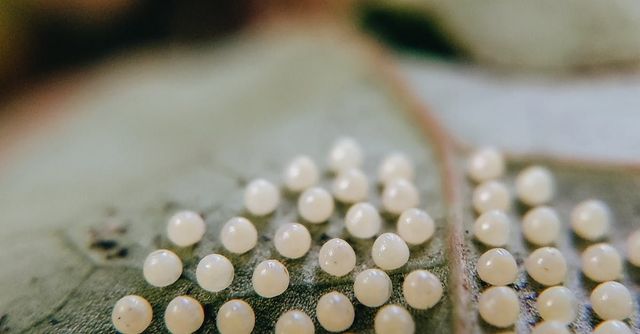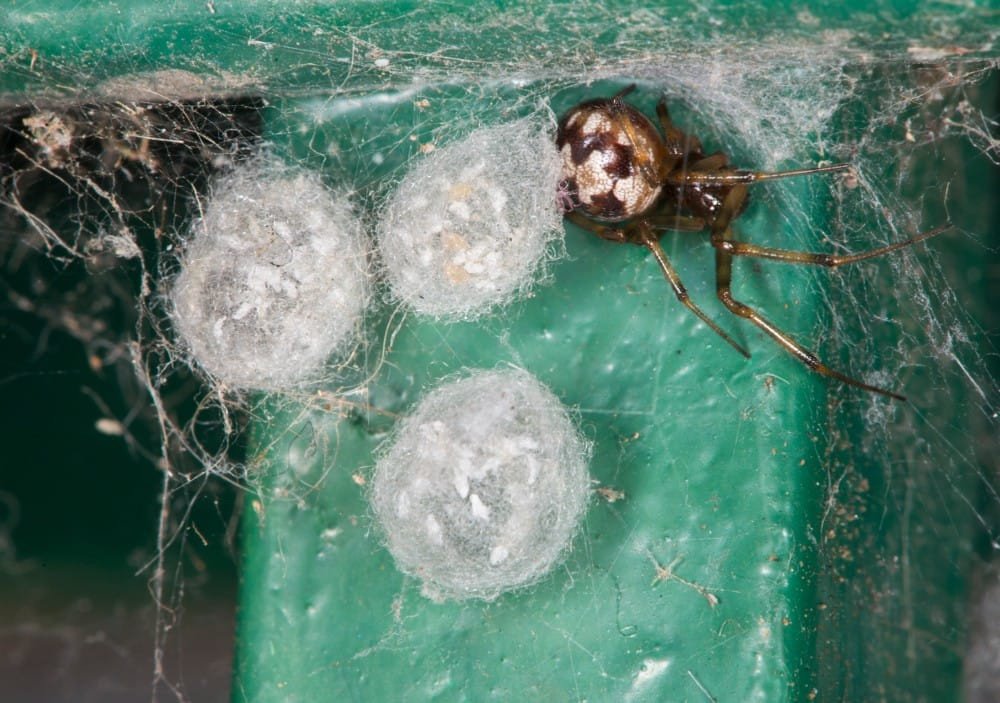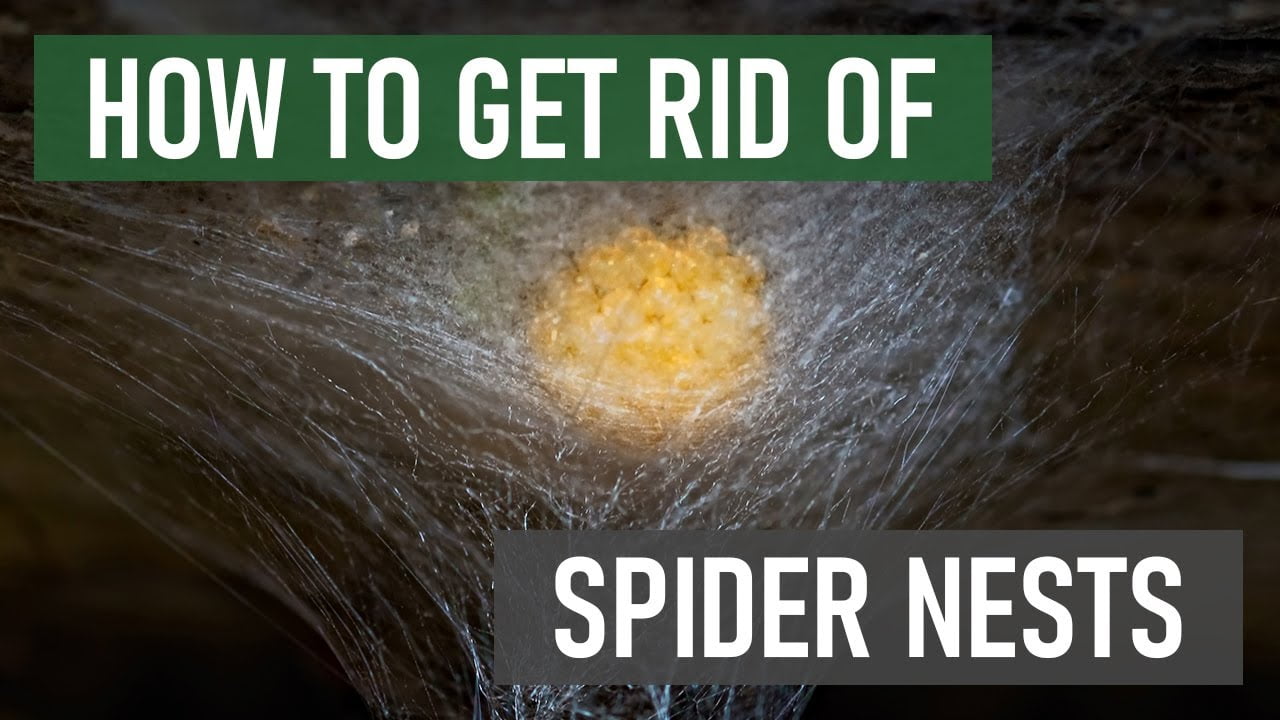If you find a spider nest, carefully remove it using a vacuum or call a pest control expert. Dealing with a spider nest can be unsettling, but taking swift and appropriate action is essential.
Promptly addressing the situation can help prevent a potential infestation and alleviate any concerns about the presence of spiders in your environment. Discovering a spider nest can evoke a sense of unease for many individuals. However, knowing the correct steps to take can provide reassurance and effectively manage the situation.
Whether you choose to handle it yourself or seek professional assistance, understanding the best course of action is crucial. We will explore the appropriate measures to take if you encounter a spider nest, offering valuable guidance to ensure a swift and effective resolution.
Identifying Spider Nests
Identifying spider nests can be a daunting task, but it is important to know what to do if you find one. First, it is recommended to identify the type of spider and assess the potential risk. If necessary, seek professional help to safely remove the nest.
Common Characteristics
Spider nests can vary in appearance depending on the species, but they commonly feature a tightly woven web structure with a dense, silk-like material. The eggs are typically enclosed within a protective sac made from the same silk, which can range in color from white to beige or brown. Identifying spider nests is crucial for effective pest control and ensuring the safety of your living spaces.
Locations To Watch
Spider nests are often found in undisturbed areas such as attics, basements, closets, and outdoor sheds. These arachnids prefer dark, secluded spaces, so it’s important to inspect these areas regularly. Pay close attention to corners, behind furniture, and in the crevices of windows and door frames. By being vigilant about these locations to watch, you can identify and address spider nests before they become a larger issue.

Credit: bulwarkpestcontrol.com
Initial Reactions And Safety Measures
Upon discovering a spider nest, remain calm and avoid disturbing it. Safely remove the nest using a vacuum or seek professional pest control assistance. Wear gloves and ensure proper ventilation when handling the nest to minimize any potential risks.
Stay Calm
Finding a spider nest can be unsettling, but it’s important to remain calm. Your initial reaction is crucial in ensuring your safety and the safety of those around you. Panicking can lead to careless actions that may escalate the situation.Protective Gear
Wearing protective gear is crucial when dealing with a spider nest. Protective clothing like long-sleeved shirts and pants, gloves, and boots can prevent spider bites. It is also important to wear a mask to prevent inhaling any harmful particles that may be present in the air.Remove The Nest
Removing the spider nest can be a daunting task, especially if you have arachnophobia. However, if the nest is located in a high-traffic area, it is crucial to remove it to prevent spider bites. You can use a broom or vacuum cleaner to remove the nest. It is important to dispose of the nest properly and immediately after removal.Call A Professional
If you are unsure about how to remove the nest or if you are dealing with a venomous spider species, it is best to call a professional exterminator. They have the necessary experience and equipment to remove the nest safely and effectively.In conclusion, finding a spider nest can be scary, but it’s important to remain calm and take the necessary safety measures. Wearing protective gear, removing the nest, and calling a professional are all important steps to ensure your safety and prevent spider bites.Home Remedies To Tackle Spider Nests
Vinegar Solution
Vinegar can help repel spiders due to its strong scent.
Diatomaceous Earth
Diatomaceous Earth is a natural insecticide that can effectively kill spiders.

Credit: www.dentecpest.com.au
Commercial Solutions For Spider Control
When it comes to dealing with spider nests, commercial solutions can provide effective and efficient spider control. There are various options available, including insecticides and spider repellents. Let’s explore these commercial solutions in more detail:
Insecticides
Insecticides are a popular choice for eliminating spider nests. These products contain powerful chemicals that target spiders and their eggs, effectively eradicating the infestation. When using insecticides, it is crucial to follow the instructions provided by the manufacturer carefully. Here are some key points to consider:
- Choose an insecticide specifically formulated for spider control.
- Apply the insecticide directly onto the spider nest and the surrounding areas where spiders are likely to hide.
- Ensure proper ventilation in the treated area to minimize exposure to the chemicals.
- Keep children and pets away from the treated area until the insecticide has dried completely.
- Regularly inspect the treated area for any signs of spider activity and reapply the insecticide if necessary.
Spider Repellents
If you prefer a more natural approach, spider repellents can be an effective solution for keeping spiders at bay. These repellents typically contain ingredients that spiders find unpleasant, deterring them from nesting in a particular area. Here are some tips for using spider repellents:
- Choose a spider repellent that is safe for indoor and outdoor use.
- Thoroughly clean the area before applying the repellent to ensure maximum effectiveness.
- Follow the instructions on the repellent product for application guidelines.
- Apply the repellent to the areas where spiders are commonly found, such as corners, cracks, and crevices.
- Reapply the repellent periodically to maintain its effectiveness.
By utilizing these commercial solutions for spider control, you can effectively address and eliminate spider nests, creating a safer and more spider-free environment.
Natural Predators And Biological Controls
When it comes to dealing with spider nests, natural predators and biological controls can be effective solutions. Encouraging the presence of natural predators and utilizing biological insecticides are environmentally friendly ways to manage spider populations without resorting to harsh chemicals.
Encouraging Natural Predators
Encouraging natural predators of spiders, such as birds, lizards, and certain insects, can help keep spider populations in check. Creating a habitat that attracts these predators, such as providing bird feeders and birdhouses, can help maintain a natural balance in your outdoor space.
Biological Insecticide Options
Biological insecticides, such as those containing bacillus thuringiensis (Bt) or neem oil, can target and control spider populations without harming other beneficial organisms. These options are eco-friendly and pose minimal risk to humans and pets, making them a safe choice for managing spider nests.
Preventive Measures To Avoid Future Infestations
Discover effective preventive measures to avoid future infestations if you stumble upon a spider nest. Take immediate action by removing the nest carefully, eliminating potential hiding spots, sealing entry points, and keeping your home clean and clutter-free. Stay vigilant to ensure a spider-free environment.
Preventive Measures to Avoid Future InfestationsWhen it comes to spider nests, prevention is the key to keeping them away from your home. Here are some preventive measures that you can take to avoid future infestations.Sealing Entry PointsOne of the most effective ways to prevent spiders from entering your home is by sealing all entry points. These entry points could be gaps, cracks, or holes in your walls, windows, or doors. You can use a sealant or caulk to seal these entry points. Additionally, you can install weather stripping to seal gaps around windows and doors.Regular CleaningRegular cleaning is essential to keep your home spider-free. Cleaning your home regularly will help eliminate any food sources that spiders might be attracted to and remove their webs. You should vacuum your floors, carpets, and furniture regularly. Also, you should wipe down your counters, tables, and other surfaces to eliminate any food crumbs or spills that might attract spiders.Here are some cleaning tips to keep in mind:– Dust and vacuum corners, crevices, and other hard-to-reach areas. – Keep clutter to a minimum. – Store food in airtight containers. – Don’t leave dishes in the sink overnight. – Dispose of garbage regularly.ConclusionBy following these preventive measures, you can keep your home spider-free and avoid future infestations. Remember to seal all entry points and clean your home regularly to eliminate any potential food sources. With these simple steps, you can enjoy a spider-free home all year round.When To Call A Professional
Discovering a spider nest can be alarming, especially if you suspect a severe infestation. Signs of severe infestation may include:
Signs Of Severe Infestation
- Rapid increase in spider sightings
- Webs in multiple areas of the property
- Fecal droppings or egg sacs present
If you notice these signs, it’s crucial to act promptly. Selecting a reputable pest control service is essential. Consider the following when choosing a pest control service:
Selecting A Pest Control Service
- Check for proper licensing and certification
- Read reviews and ask for referrals
- Ensure the service offers a guarantee

Credit: bayoucajunpest.com
Post-eradication: Maintaining A Spider-free Environment
Discovering a spider nest can be unsettling. To maintain a spider-free environment post-eradication, swiftly remove the nest using caution. Seal entry points to prevent future infestations and consult with professionals for thorough inspections.
Monitoring For New Activity
Regularly check potential hiding spots for spiders.
Use a flashlight to illuminate dark areas.
Keep an eye out for webs and egg sacs.
Ongoing Prevention Tips
Seal cracks and crevices to block entry points.
Remove clutter to eliminate hiding spots.
Use essential oils like peppermint as a natural deterrent.
Keep outdoor lights off to reduce attracting insects.
After removing a spider nest, it’s crucial to prevent future infestations.
Regularly check for signs of spider activity to catch any issues early.
Implement ongoing prevention strategies to keep spiders away.
Frequently Asked Questions
Faq 1: How Do I Identify A Spider Nest?
A spider nest can be identified by its appearance – a small web-like structure with multiple eggs. Look for clusters of spider eggs, usually hidden in corners, crevices, or dark areas. Be cautious and avoid touching the nest to prevent any potential harm or disturbance to the spiders.
Faq 2: What Should I Do If I Find A Spider Nest In My House?
If you discover a spider nest in your house, it is best to contact a professional pest control service. They have the knowledge and expertise to handle the situation safely and effectively. Attempting to remove the nest yourself may risk the spiders scattering or the eggs hatching, potentially leading to more spider infestation.
Faq 3: Can I Remove A Spider Nest On My Own?
While it is possible to remove a spider nest on your own, it is not recommended unless you are knowledgeable about the species and confident in your abilities. Some spiders can be dangerous, and disturbing the nest without proper precautions may result in bites or the release of more spiders.
It is always safer to seek professional assistance.
Faq 4: Are Spider Nests Dangerous?
Spider nests themselves are not usually dangerous. However, some spider species may be venomous and pose a risk if disturbed or provoked. It’s important to exercise caution and avoid direct contact with spider nests to prevent bites or the release of spiders.
If you are unsure about the species, it is best to contact a professional for assistance.
Conclusion
In situations where you encounter a spider nest, it is crucial to remain calm and handle the situation with caution. By following the appropriate steps and seeking professional help if needed, you can ensure a safe and effective resolution. Remember, prevention is key in keeping your surroundings spider-free.
Related posts:

I’m MD Tanvir, and I bring years of expertise gained from working closely with pest control companies to the forefront. My journey in the industry has inspired me to launch Bug Battler, a platform aimed at equipping people with the know-how to combat pests autonomously. Through Bug Battler, I aim to empower individuals with practical insights to tackle pest infestations effectively.

